This post is based on an email interview that my long-time corrspondent Giulio Prisco made with me for his own website, Turing Church. Born in Italy, Giulio now lives in Budapest with his Hungarian wife.

GP1: Let’s start with Juicy Ghosts. Your concept of lifebox immortality proposes a deep database on a person, coupled to an interactive front end, and with an AI algorithm to generate speech from the database. I wonder how soon our tech will be able to make this fully real.
RR1: These questions are very much in the air thanks to the chatGPT chatbots. But we want more, we want the real thing. A fully sentient lifebox. In these discussions we often play with Moore’s Law—that is, the notion that computers double their power every two years. In “The Mind Recipe” section of The Lifebox, the Seashell, and the Soul, I go into some detail, and come up with the suggestion that we’ll get there by 2100, that is, in eighty years. But maybe that’s overly cautious. On the one hand emulating people may be harder than we think. But chatGPT makes us think that it might be easier. Maybe human thought patterns are something that occurs naturally, like self-organizing pairs of Zhabotinsky scrolls in troubled water or embryos or plants or…

Deciding when we’ve succeeded is a little tricky. There’s always been the Turing Test—that is, you let people vote on whether a lifebox seems to talk like a person or not. Keep in mind, however, that when I comes to AI, you can sometimes fool people with cheap tricks. But, cheap trick or not, I think we have to admit that the chatGPT chatbots are blowing the Turing Test away. So, like chess, the Turing Test is going to be another “true AI benchmark” for which we end up saying, “Well, actually I wanted something more than that.”

The funny-sad thing is that AI often comes down to beating a problem to death—with vast search processes and by using simulated evolution to train neural nets. As thats what the chess programs and chatGPT are doing. But there’s a nagging sense that these AIs don’t really “understand” chess or conversation in way that people do.
But maybe we fool ourselves about our superior style of learning. Maybe we too learn by peering through search trees, and by training our internal neural nets. But we have colorful, romantic names for what we do. Savoir-faire, a sense of the problem space, the web of forces at play, the topology of desire, the integrated gestalt view, empathy…
If our actual thought processes are in fact similar to machine learning, there might be fully convincing lifebox programs in ten years. It could be like the collapse of the Berlin Wall. Happens all at once.
But as a novelist, I think—and hope—it will take a king tune before AIs can write startling, poetic, revelatory novels like mine. Non-writers tend not understand how hard the process actually is. Just try it and see!
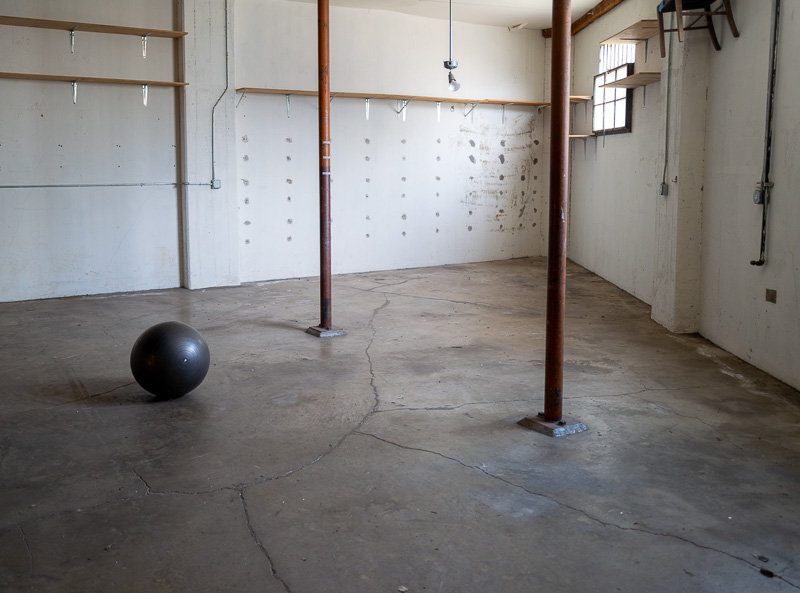
GP2: Let’s move to physics! Please elaborate on this remark of yours: “the Planck length scale isn’t a wall. It’s a frontier. There’s a whole new subdimensional world below. And it’s intimately connected to the transfinite.”
RR2: Well, you need to remember that I’m a bullshitter. I invent wild ideas because they’re shocking and beautiful. You know the French expression: Épater la bourgeoisie? Stun the stuffed shirts. At the very least, wild ideas can lead to fun SF.
More seriously, I have a mathematician’s approach to physics. Why not change our axioms, and explore the logical consequences?. And maybe, just maybe, we’ll find that we really are talking about the real world that we live in. And that we’ve discovered something new about it. The dawn of modern physics was only about a hundred and fifty years ago. It seems rather likely that there’s a lot of new physics to come.
And, yes, I’ve always been annoyed by claims that we can’t go below the Planck scale. I mean, come on, there’s gotta be something. The jive that quantum mechanics is stranger than we can imagine—that doesn’t cut it with me.
And when I mentioned the transfinite in that quote, I was referring to the fact that, if we’re free to go way, way down there, well then we might learn that physical space is what mathematicians call an absolute continuum. This is a notion introduced by the set-theorist Felix Hausdorff around in the early 1900s, extended up by the antic mathematician John Horton Conway in 1969, and popularized by the computer scientist Donald Knuth in his book Surreal Numbers. Our space might be stuffed with transfinite levels of divisibility. And that would be very cool.
Mathematicians would jubilant if our wonder towers of infinites could find applications in actual physics. It would be like when Bernhard Riemann’s curved space was used to explain gravity in Einstein’s General Theory of Relativity.

GP3: In 2012 you proposed a Natural Incompleteness Theorem: Do you still think this is a rigorous proof of a Gödel-equivalent theorem for physics, and do you have new insights that you can share?
RR3: My Natural Incompleteness Theorem says this: For most naturally occurring complex processes, and fo any correct formal system for science, there will be sentences about the process that are undecidable by the given formal system.
What makes the Natural Incompleteness Theorem attractive is that the undecidable sentences are not just about arithmetic. They’re about the behavior of actual real-world processes.
In grad school in the Seventies, I studied Kurt Gödel’s Incompleteness Theorem for mathematics. And since then I’d always been looking for a way to formulate an incompleteness theorem for the natural world. My result appears in the extensive appendix to The Lifebox, the Seashell, and the Soul, and as a paper in a collection of essays on Stephen Wolfram’s work.
I do think it’s intuitively obvious that natural incompleteness would have to be true. We don’t even need quantum indeterminacy to get there. Natural computations can generate all the unpredictability and undecidability we need.
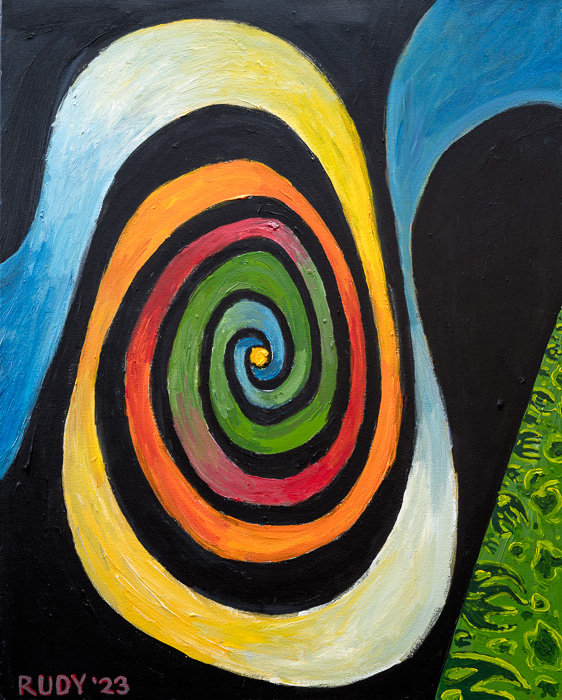
It would be too much to say that I have a rigorous proof. It’s a plausibility argument based on two of Stephen Wolfram’s moves. (i) Natural processes can be regarded as computations. (ii) Any complex physical process is in fact performing a universal computation—like a standard computer does, or like a general Turing machine.
The idea behind my argument is that universal computations are irreducible, that is, there’s no shortcuts for predicting what they’ll do. Not only are they irreducible, they’re undecidable, that is, there are questions about any universal computer that cannot be proved to be true or proved to be false.
My result has attracted very little attention among physicists and philosophers. I didn’t publicize it very well, and many academics disapprove of Wolfram’s work. Perhaps they find it too heavy on the computer science, or perhaps the man’s style puts them off. But I like Wolfram, and he’s a personal friend.
It was in fact Wolfram who corralled me into the computer science. Before that I was a pure mathematician…as well as being a writer. Writing has always been my main job, not that it pays very well.

GP4: You say that even if the universe is fully deterministic, then computational irreducibility makes it impossible to predict the future before it actually happens. And you say this resolves the conflict between determinism and free will. Part of my brain agrees. But my heart and another part of my brain wish to live in a universe with non-predetermined change. Determinism is boring. Thoughts?
RR4: First let me confess something. I’m not quite sure why I care about the issue at all. But for some reason I enjoy arguing about it.
For starters, let’s delve into what we even mean by free will. I think it means an ability to interrupt the world’s lawlike unfolding of natural processes. An ability to stand outside the world, and to reach in and zap it with a jolt of change. An ability to effectively break the laws by inserting a discontinuous blip of randomness.
Now, this could make sense if I am somehow standing outside the world. If, for instance, I were a disembodied mind floating above the mundane world. Like an angel or a ghost or a god or an immortal soul. Watching my body from above, and occasionally poking it with a wand. But I’m expressly ruling out that move. I’m insisting that my mind is a process in my physical body, and it’s wholly embedded in physical spacetime. (You’re of course free to disagree with that, but if you do, then we’re having an entirely different discussion—which I’d prefer to set aside for some other time.)
So okay, I’m not a surfer a surfer riding on reality’s wave. I’m a ripple on the wave. I’m not a disembodied mind. I’m part of the world. I’m a deterministic natural process just like all the things around me. And when I make a decision it emerges from the deterministic commutation that is me, Mr. Wave On A Wave.
Is this sad? No. Computational unpredictability is enough to make the world be far from boring. It takes some extensive hands-on experimentation with computers to grasp how truly gnarly a deterministic computation can become. I learned about this by spending a lot of time in front of computer screens watching cellular automata programs, zooming into fractals, and emulating systems of pendulums and magnets—this was when I was working on the software packages CA Lab and James Gleick’s Chaos for Autodesk in the late 1980s and early 1990s.
So my sense is that—surprisingly enough—computational unpredictability is enough. We don’t need randomness. And we don’t need minds. The universe gets gnarly all on its own.

Look at a natural computation, such as the growth of an oak tree. Interestingly, the history of the oak’s growth is traced out by the twisted patterns of its branches. And I would maintain that, If you could start the growth of the tree over again—and if all surrounding inputs were the same including sun, wind, and rain—then you’d get the same tree all over again. The tree has no “free will.” It’s a phenomenon embedded in reality’s flow. The tree follows its innate predilections and it ends up in the same place.
And so do you. If you could run through your entire life again, you’d end up just as you are now—having made the same blunders, and having experienced the same strokes of genius. As you go along, every stage of your life feels fresh. And this is because your internal computations are so massively complex that there is absolutely no way to predict their output
This unpredictability is absolute, fundamental, and inviolate. It’s not even as if some mechanism that’s the size of the universe could use few quick steps to predict you. Even the universe needs a lot of steps. It needs to carry out the intervening computation. The only way to find out what happens is to let the frikkin’ universe run through all the steps between now and then.
Deterministic, yes. Shortcuts available, no. Free will is an illusion. Fate is more like it. You’re forever riding the wave. But, as I say, you’re not a board on the wave—you’re a wave on the wave. An avalanche in the snow. Doing what you do and living the events as they arise. Pure Zen.

GP: Maybe I’m missing something, but a fully deterministic block universe still seems quite a boring place to me, because everything is predetermined and time/change don’t really exist.
RR5: There’s nothing boring about it at all! I’ll go over it again—I’m doing this to convince myself as well as to convince you. I want to believe this because it feels good. This is how I write my SF, by the way. I come up with some idea, and convince myself it’s true, so that I can write about an unusual reality.
I watch my life happening around me, and I have no clear idea what tomorrow will bring. My mind is like the weather, with storms and sun. All I can do is to live it. It’s not a pre-written script. It’s something that plays out.
But, okay, yes, I do indeed have the feeling that I’m making decisions, and exerting myself to do this or that, and wanting to make up for mistakes I made, and planning to do better next time, and wondering what my next step should be. All of this is part of a deterministic process. But how can this be?
I once asked Kurt Gödel about a similar conundrum. (Love to drop that name.) In the block universe, the past present and future are fixed patterns in spacetime. And yet, at every moment of my life I feel like time is passing. So I asked Gödel, “What causes the illusion of the passage of time?”
His answer: “The illusion results from confusing the given with the real.”
The given is my ongoing sensation of what my life is like. The real is the overall timeless structure of my life from beginning to end. The given is the green, growing tip of a twig. The real is the great pattern of the branches of the oak.

GP6: Speaking of beating an idea to death! Time to change the subject. Might it be that the block universe as a whole changes sideways in another timelike direction? You have hinted at a “paratime” in Saucer Wisdom, and in Freeware and Mathematicians in Love you talk about a “a second dimension of time” which is, as it were, perpendicular to our normal direction of time.” I love the idea.

RR6: I’ll put in a drawing of paratime from Saucer Wisdom. I’m just now putting that book online. It’s in the broad family of my “curiously neglected books.” I’m never quite sure why they’re unknown. I guess I go a bit too far. Like, is Saucer Wisdom supposed to be true, or amusing, or satirical, or a novel, or what? Seek and ye shall find. I contains a number of futurological predictions which are coming true. As well as being, IMHO, quite a funny tale.
And, yes, some of the aliens in Freeware were from a zone of 2D time. And I used sideways time in Mathematicians in Love. In there, I proposed that our block universe is like a novel written by a god whose life runs in perpendicular time. As his sideways time goes by, the god keeps producing revised version of our spacetime block. A series of drafts for the Great Author’s novel.
It was fun to write about this, and it solved some plot problems, but it’s not actually a notion that I like. Sideways time is a version of the currently fashionable “multiverse” model. To me, multiverse stories are unsatisfying. My problem with the multiverse is this: if everything happens, then nothing matters.
I prefer to think our spacetime block is a single, unique, supreme pattern, rich with synchronistic connections. The greatest story ever told.
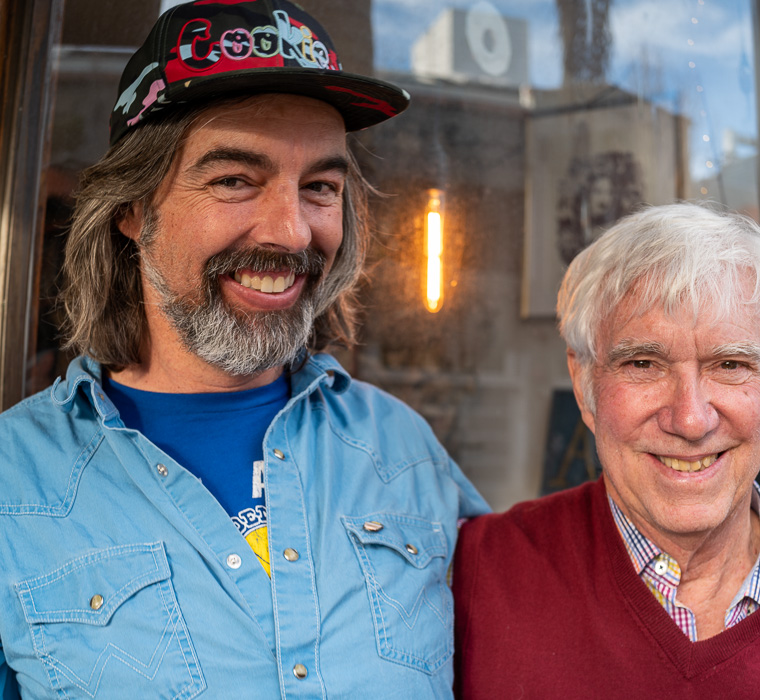
GP7: In Infinity and the Mind you suggested that the essence of consciousness, the bare feeling of existence expressed by “I am.” And you said this feeling is the same for everyone. But in your Lifebox tome you seemed to backpedal: “Might one’s glow of consciousness have some specific brain-based cause that we might in turn view as a computation?” Might that cause be, I don’t know, some kind of texture or crypto hash? What do you think now?

RR7: I have to admit that I’m tempted by the idea of a human’s sense of consciousness being an add-on feature. Like some endogenously produced endorphin drug? But I wouldn’t want to go for the idea of the soul being a drug. It’s all just molecules, baby.
And some say that consciousness is a results from self-mirroring, where you’re watching yourself watching yourself. That’s an idea due to Antonio Damasio, and I discuss it in the “I Am” section of my Lifebox tome. But I don’t really see consciousness as being so complex. I’m the highest when I’m not thinking at all. That’s what meditation is about.
I don’t necessarily believe just one thing about these issues.. I think lots of things. I play with the alternatives. But, okay, if I’m going to cook it down and say just one thing about consciousness, here it is. Cook it up and shoot it.
The glow is real, and it’s everywhere. Zen version; (Q) Does a rock have Buddha nature? (A) The universal rain moistens all creatures. Putting it differently, our universe is a stained glass window, with the cosmic mind shining through each shard. The One. The White Light. Everything is alive.
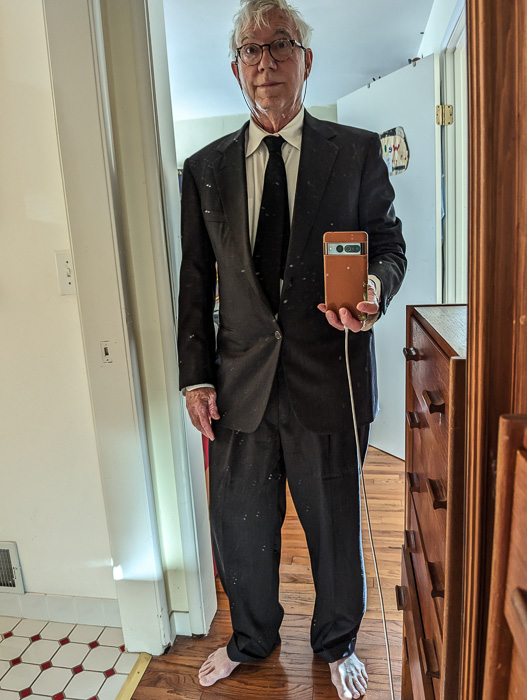
GP8: Is there a concept of life after death that both your brain and your heart can accept?
RR8: My wife Sylvia died six weeks ago. And in the last few years, I myself came close to death in the ER several times. So I think about the afterlife. Most of my recent stories and novels touch upon this topic, even when I don’t consciously plan to write about it. I have no real control over what I write. I’m a wave on a wave.
And now you ask me about the afterlife. Love it. I’m ready to get heavy your ass.
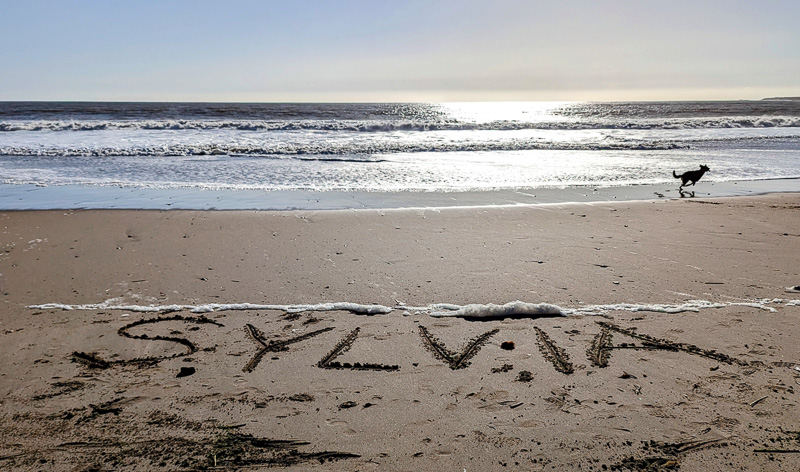
My heart knows that Sylvia will live on in my mind. I’ll think about her, and visualize her, and imagine talking to her—for as long as I live. I might even hear her voice in my head, or imagine that I see her. So in this weak sense she’s immortal. And—interesting point—memory-pattern afterlife in someone else’s brain is precisely the same as the computer-science lifebox sense. I have a highly accurate model of Sylvia in my brain, and my brain is a sophisticated wetware computer that emulates Sylvia.
Everyone lives on in the minds of those who love them.
Here’s another angle. If you’re lucky enough to have children, or nieces and nephews, some of your genes have been passed on, and these younger people will to some extent resemble you and behave like you.
Less concretely, if you’ve been a mentor or a teacher or a writer or an artist or a musician, you’ve passed on some of your skills and personality traits and world views.
Moving to a hardcore physics view, your life is a permanent pattern in spacetime. And this is a type of eternal life too.
And, yet again, still another option is that when you die you merge into the great one mind of the cosmos. You’re with god. A dewdrop sliding into the sea.

But if you’re the person who’s dying, you might ask for something more traditional. You might want to live on with only a slight hitch in continuity—live on, and keep having new experiences. How could this work? To make it as simple as possible, let’s suppose that the afterworld is different layer of reality, a shadow world overlaid upon ours. And it’s not going to be a matter of copying your mind into some kind of lifebox. We’re going fully old-school instead.
You have an immaterial soul, and you’ve had it inside you all along. Now, I said earlier that your soul ought to based on some physical process…but maybe we’re bringing in some higher, as-yet-unknown physics here. So, okay, when you die your soul drifts free. You give up the ghost! And the ghost settles into a new existence in the shadow world. Haunting your house for a while, and later going further afield. The afterworld rolls on and on, with many places to dwell, one of them is heaven.
A soothing story. But maybe when you die, it’s like turning off a light. You’ll be getting out of the way, and letting the new people have a chance. Old trees fall over. They decay into the soil New sprouts push up. The wheel of life.
I mentioned that in recent years I nearly died several times. Each event centered around a gap—an interval when I was completely unconscious. Not sleeping, not dreaming, but out. Gone. Not there. But then I woke up. It was like a jump cut in a movie. You’re going along and then—snip—you’re not. Thus far, for me, there’s always been a new segment of my life spliced on after the cut. But eventually there won’t be a new segment. It’ll be snip and nothing more. That’s the kind of near-death experiences that I had. Curtains.
Is that so terrible? It’s quite likely to happen that way, so why not accept it? Enjoy the time you have.
But still, but still… It’s nice to look up at the night sky and think of Sylvia, and my parents, and my dead friends—to think of them, and to imagine that they’re smiling down at me. Loving me. It loosens the barbed wire wrapped round my heart. So why not believe it? Why not find a scrap of comfort?
Having written all this, I lean against a door frame with my eyes closed, looking within. Washes of gray and umber. Textures and drifting dots. A fecund, inchoate substrate that’s just as real as my speculations about time, souls, and minds.
I have no idea what’s going on, and I never will.

GP9: You and I have been privileged to marry Hungarian women. Aren’t Hungarian wives the sweetest? Could you share an anecdote of your Sylvia related to the things that we are discussing?
RR9: Sylvia was sweet, but I’d use lots of other words as well. Worldly, lovable, dramatic, sexy, spirited, devoted, loud, excitable, willful, kind, generous, vigorous, tidy, reckless, modest, curious, greedy, festive, anxious, gorgeous, affectionate, selfless, neighborly, and chic. I love Hungarians, and there’s lots of different types—sometimes all in one. I’d almost call Sylvia a cornucopia, just to tease her, but I can hear her telling me, “Don’t you dare!”
As for anecdotes about Sylvia—read my novels and my published journals. There’s a lot of transreal Sylvias in those mirrors. She used to complain about it. “I hate when people act like they already know me. They don’t know me at all!”
Here’s something that Sylvia said over and over during her final weeks. “The world is beautiful. The world is so beautiful.”
She wasn’t exactly asking for more. It was more that she was grateful for what she’d had. And wistful that it was nearly over.
I’m lucky to have lived with her.










March 10th, 2023 at 12:52 am
Thanks Rudy for republishing this with so many nice pictures! I’ll post my comments and further thoughts.
March 13th, 2023 at 2:45 am
Hi Rudy, I posted some comments and further thoughts:
https://www.turingchurch.com/p/qa-with-rudy-rucker-comments
March 15th, 2023 at 2:07 am
Hi Rudy, I posted my comments and further thoughts in my website. I’m also pasting them here:
RR: “Deterministic, yes. Shortcuts available, no. Free will is an illusion. Fate is more like it.â€
GP: I find the your ideas on computational irreducibility as a proxy for free will almost appealing, but not quite. I’m still unhappy with the idea that, while my thoughts and actions look & feel like free will, they are still uniquely determined by the past of the universe.
My favorite way out of the conflict between determinism and free will is based on global determinism: what happens in the universe, anywhere and at any time, is uniquely determined by the whole universe but not by anything less than the whole spacetime – in particular, it is not uniquely determined by the past of the universe. A clear formulation of global determinism is due to Emily Adlam. She suggests that the universe doesn’t compute itself locally in space and time, place by place and instant by instant, but all at once globally and self-consistently. See my review of Adlam’s ideas, and listen to my chat with Adlam.
The history of a globally deterministic universe “is determined ‘all at once’ by external, atemporal laws of nature.†Each part of the history “is dependent on all other parts of the history.†While the history is uniquely determined by global constraints and self-consistency, what happens next depends not only on what happened in the past but also on what will happen in the future (retrocausality).
Global determinism opens the door to a concept of free will related to John Wheeler’s conceptual summary of general relativity: “Spacetime tells matter how to move; matter tells spacetime how to curve.â€
Wheeler’s self-consistent feedback loop between the motion of matter and the geometry of spacetime is a deterministic process in the sense of Laplace only if we assume that we can always follow the evolution of the universe from a snapshot at one time, for example in the past, with each snapshot determining all the others. But this is not the case in general relativity.
Einstein’s equations of general relativity admit solutions that are not “globally hyperbolic.†What does this mean? It means that there are no snapshots. Michael Lockwood explains that it is impossible to slice up a spacetime that is not globally hyperbolic into snapshots “that a proponent of the tensed view could then regard as being successively actualized with the onward march of the moving present.â€
General relativity offers no guarantee that one can always divide a warped spacetime in snapshots in a way that supports Laplacian determinism. On the contrary, general relativity admits solutions, such as spacetimes with closed timelike curves (first found by Gödel) or naked singularities, which break Laplacian determinism. This suggests that the universe is deterministic only in a global sense.
If what I do is determined by the whole universe but not uniquely determined by the past of the universe (or more generally, by the universe minus me), then yes, the universe determines what I do, but what I do determines the universe in turn, in a self-consistent loop.
This deterministic loop includes free will: I’m still determined by the whole universe but not by the universe minus me. Then I can think that I am an integral part of the cosmic feedback loop, and this is a kind of free will – the universe without me wouldn’t be the same universe, and therefore I’m one of the agents that determine the universe. This allows me to make peace with determinism.
I guess your resolution of the conflict between determinism and free will, based on computational irreducibility, is simpler and cleaner than the resolution I just outlined. It seems equivalent for all practical purposes, and gets the job done without invoking frontier physics or speculative philosophy. But future research could study global determinism with precise mathematics instead of vague analogies. Meanwhile, the vague idea of global determinism makes all the difference in the world to me, and allows me to find determinism emotionally acceptable.
RR: “To me, multiverse stories are unsatisfying. My problem with the multiverse is this: if everything happens, then nothing matters. I prefer to think our spacetime block is a single, unique, supreme pattern, rich with synchronistic connections. The greatest story ever told.â€
GP: That “if everything happens, then nothing matters†is also my own problem with Everett’s multiverse! Or even, if everything happens, then nothing happens.
But perhaps only some particular sideways worlds (as opposed to all mathematically possible Everett worlds) are real? Philip K. Dick thought so. His ideas on sideways realities are covered in the 2021 book “The Simulated Multiverse†by Rizwan Virk. See my short review and my full review, and listen to my chat with Virk.
“The universe spawns multiple timelines as multiple processes that are each exploring slightly different paths,†says Virk. The universe is constantly “creating multiple timelines, branching and merging and pruning.†Why? Because the universe is “looking for better outcomes,†just like our evolutionary computing simulations explore networks of alternative paths to find good paths, where “good†depends on the purpose of the simulation.
If instead of “one spacetime block†there’s a set of spacetime blocks moving sideways in another dimension of time to explore better outcomes, I think the story is even greater!
RR: “But still, but still… It’s nice to look up at the night sky and think of Sylvia, and my parents, and my dead friends – to think of them, and to imagine that they’re smiling down at me. Loving me. It loosens the barbed wire wrapped round my heart. So why not believe it? Why not find a scrap of comfort?… I have no idea what’s going on, and I never will.â€
GP: Sideways realities open the door to nice concepts of life after death. If there are sideways realities, Sylvia is in all realities where she is alive, and you are with her in many of them. I like to think that, when I move on, I’ll find myself in a sideways reality with my loved ones who have already moved on. And I’m “already there†in a meaningful sense! I hope I’m being nicer to them. Have you seen “The Discovery†with Robert Redford?
RR: “I love Hungarians…â€
GP: So do I! I married a lovely Hungarian in 1986 and we have been living here in Hungary for more than 10 years. Thank you Hungary for adopting me!